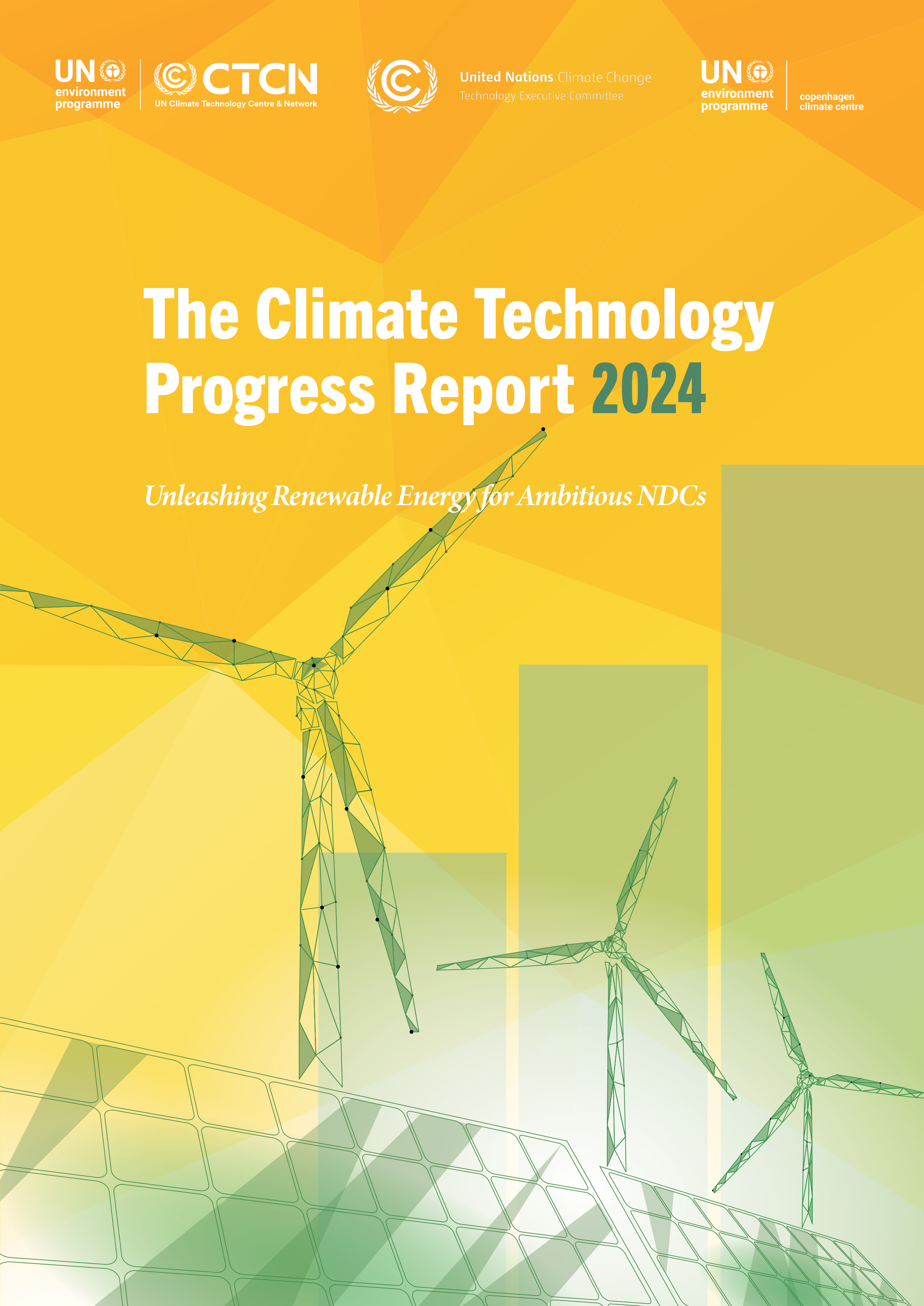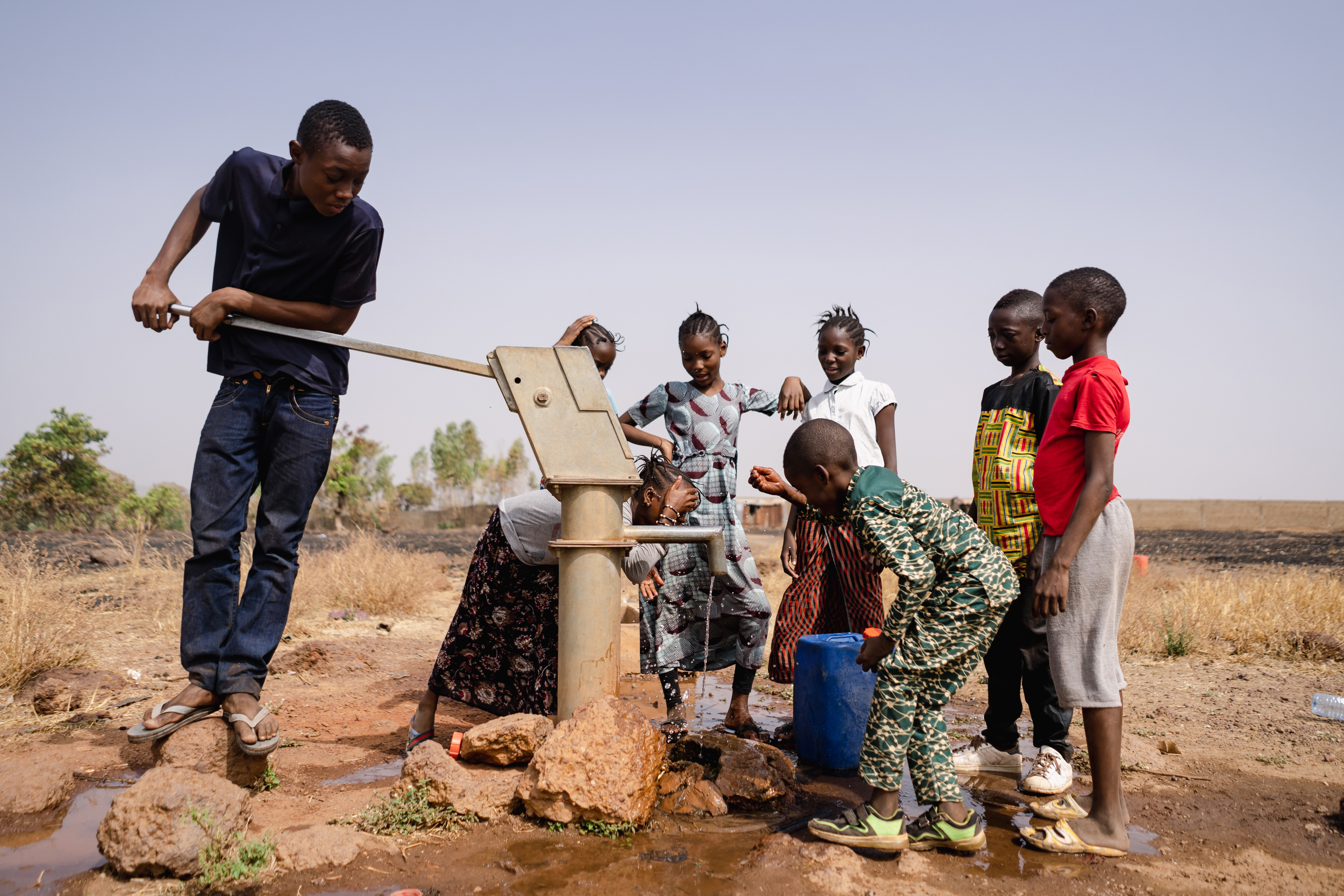As the world strives to meet critical climate goals, the 2024 Climate Technology Progress Report: Unleashing renewable energy for ambitious NDCs underscores the urgent need to triple renewable energy capacity and double energy efficiency by 2030 and spotlights the enabling conditions to create this transition.
In early 2025, Countries will need submit their second round of Nationally Determined Contributions (NDCs) to the Paris Agreement. This is a pivotal opportunity to increase climate ambitions and harness the transformative power of renewable energy.
This year’s report builds on the commitments made at COP28 to triple the world’s installed renewable energy generation capacity to at least 11,000 GW by and double the global average annual rate of energy efficiency improvements from around 2% to over 4% every year until 2030. With a specific focus on renewable energy technologies, the Climate Technology Progress Report outlines the progress made, the challenges ahead, and the key actions needed to accelerate technology development and transfer globally.
Rapid cost decline of wind and solar
The Report finds that significant advancement is being made towards the adoption of renewable energy, but that progress varies widely between countries and regions. It highlights the pivotal role of innovation, digitalization, and finance in accelerating the global transition to clean energy, assessing both current progress and what has enabled countries to bridge the gap between ambition and action.
“As the report makes clear, tripling renewable adoption requires more than technological advances — it demands equitable access to clean, reliable, and safe energy, addressing future climate impacts and cutting emissions, while making investments count where they are needed the most,” said Dechen Tsering, UNEP Regional Director and Representative for Asia and the Pacific and interim director of UNEP’s Climate Change Division.
“UNEP echoes the report’s call for inclusive investments aligned with the SDGs as we work with countries around the world in achieving the climate goals laid out in their NDCs.”
One of the main themes of the 2024 Climate Technology Progress Report is the increasing feasibility of renewable energy technologies, particularly solar and wind power, which continue to show rapid cost declines. The report emphasizes the integration of energy storage solutions and grid modernization as essential to enable large-scale renewable transitions. However, such transitions are not without challenges. The continued reliance on traditional biomass in developing countries, coupled with data gaps at regional levels, highlights the need for tailored solutions and enhanced institutional capacity.
This focus on energy and large-scale renewable transitions aligns with the needs expressed through the Technology Needs Assessment project, where more than 100 countries have assessed climate technology needs for both mitigation and adaptation efforts.
Electrification of transport and heating
The report also calls for accelerated efforts to increase renewable energy use in transportation and heating sectors. Electrification through renewable energy sources and innovative direct approaches like geothermal and solar thermal are identified as key pathways for decarbonizing these sectors.
Digital innovation, if supported by robust governance, can significantly accelerate renewable energy deployment, driving mitigation efforts and fostering benefits across sectors. The 2024 Climate Technology Progress Report underscores the need for responsible governance frameworks to manage the increased demand for digital technologies and develop digital skills and literacy to ensure that energy and digital strategies are integrated and locally owned.
The Report also encourages governments to implement circular economy strategies and national standards to mitigate the environmental impacts of digital technology expansion.
Despite the maturity of renewable energy technologies, financial barriers continue to hinder widespread adoption, particularly in developing countries. This year’s Climate Technology Progress Report highlights the high cost of capital as a significant barrier to investment in renewable energy projects. The report suggests that blended finance solutions—where multilateral development banks provide low-interest loans with guarantees—can help reduce these costs and spur investment.
The Report also calls for more inclusive investment structures supporting a just transition and community involvement and leadership in renewable energy projects. These innovative financial mechanisms should be aligned with the Sustainable Development Goals and national development plans.
As the world prepares for COP29 in Azerbaijan, the 2024 Climate Technology Progress Report serves as a crucial tool for policymakers, negotiators, and stakeholders. By offering a comprehensive analysis of the state of climate technologies, investment opportunities, and governance frameworks, the report provides a roadmap for accelerating climate technology development and transfer.



